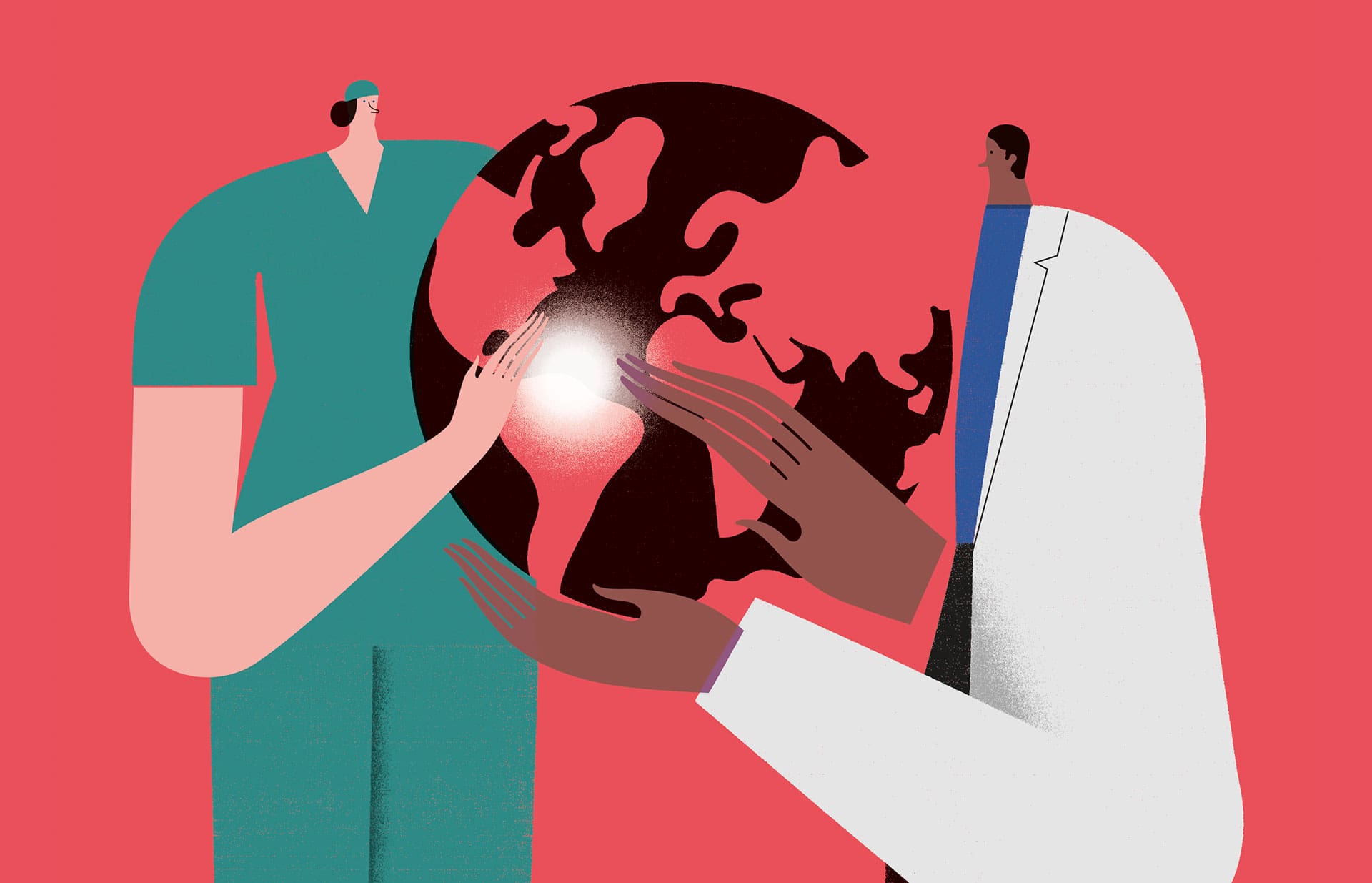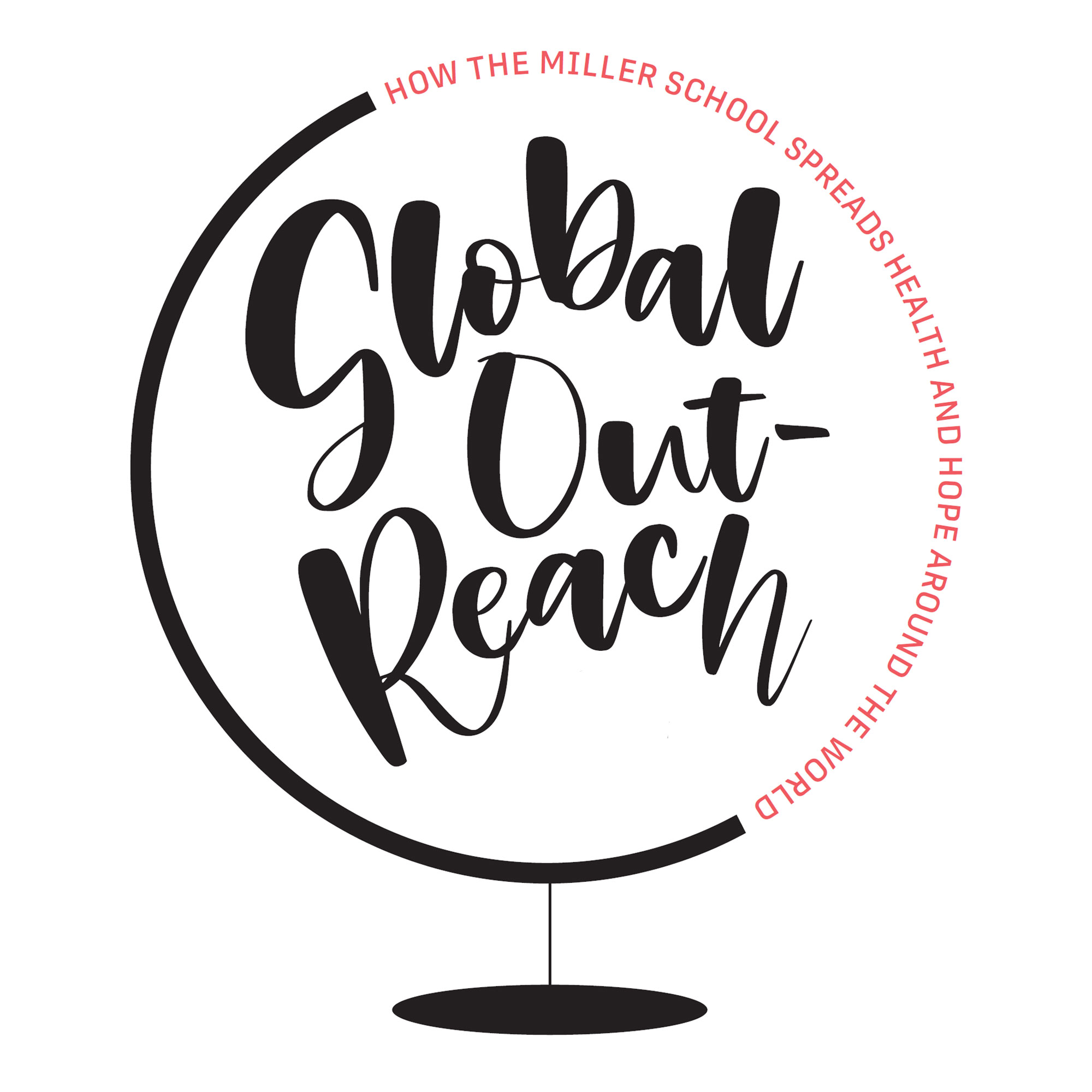
By Louis Greenstein
Illustrations for Juárez Casanova
O
n January 12, 2010, at 4:03 p.m., Judite Blanc, Ph.D., was in her family’s home in the Thomassin neighborhood of Port-au-Prince, Haiti, playing with her six-month-old daughter, when she felt a rumble. “All of a sudden, the entire house started shaking really badly,” recalled Dr. Blanc, research assistant professor of psychiatry and behavioral sciences at the Miller School. Concerned about security in her neighborhood and afraid to flee outdoors, Dr. Blanc — who at the time was midway through her master’s degree in developmental psychology and psychopathology — scooped up her daughter and scurried into a closet. “I thought we were going to die,” she said.
Luckily, they were far enough from the earthquake’s epicenter that she, her daughter, and her neighbors escaped harm. But with more than 200,000 fatalities, Haiti was devastated. “It was apocalyptic,” she said. A native of Haiti who had returned to provide psychosocial support in the impoverished nation, Dr. Blanc left the country for a month or two after the earthquake, but “it was obvious to me my place was in Haiti.” In March 2010, she returned and subsequently traveled back and forth many times to work with Haiti’s Psycho Trauma Center, which was created after the earthquake. “We didn’t wait for volunteers to come to us,” she said.
Not that the volunteers didn’t come: The response from those from the Miller School was nothing short of heroic. Indeed, it was just one example of the wide-ranging aid physicians, administrators and others from across the University of Miami community provide when disaster strikes. But more than just disaster assistance, the Miller School provides clinical care, educates health care professionals and engages in lifechanging research projects around the world.
“We’ve been doing this for a long time, and we’ve developed relationships,” said Barth A. Green, M.D., executive dean for global health and community service, chair of The Miami Project to Cure Paralysis, and professor of neurosurgery, orthopedic surgery, radiology, rehabilitation medicine and neurology at the Miller School. “We have good communication skills. We have good people. We collaborate closely with the global trauma elite at Ryder Trauma Center and at the Miller School’s Gordon Center, the number one disaster-simulation center in the world.” Behind the scenes, he said, the Miller School excels at coordinating, leading and directing other organizations.
If there is a hurricane in the Virgin Islands, “they’re going to call us first,” Dr. Green said. “They look to us to coordinate, connect, implement and react with great speed and skills. We are truly a global university.”
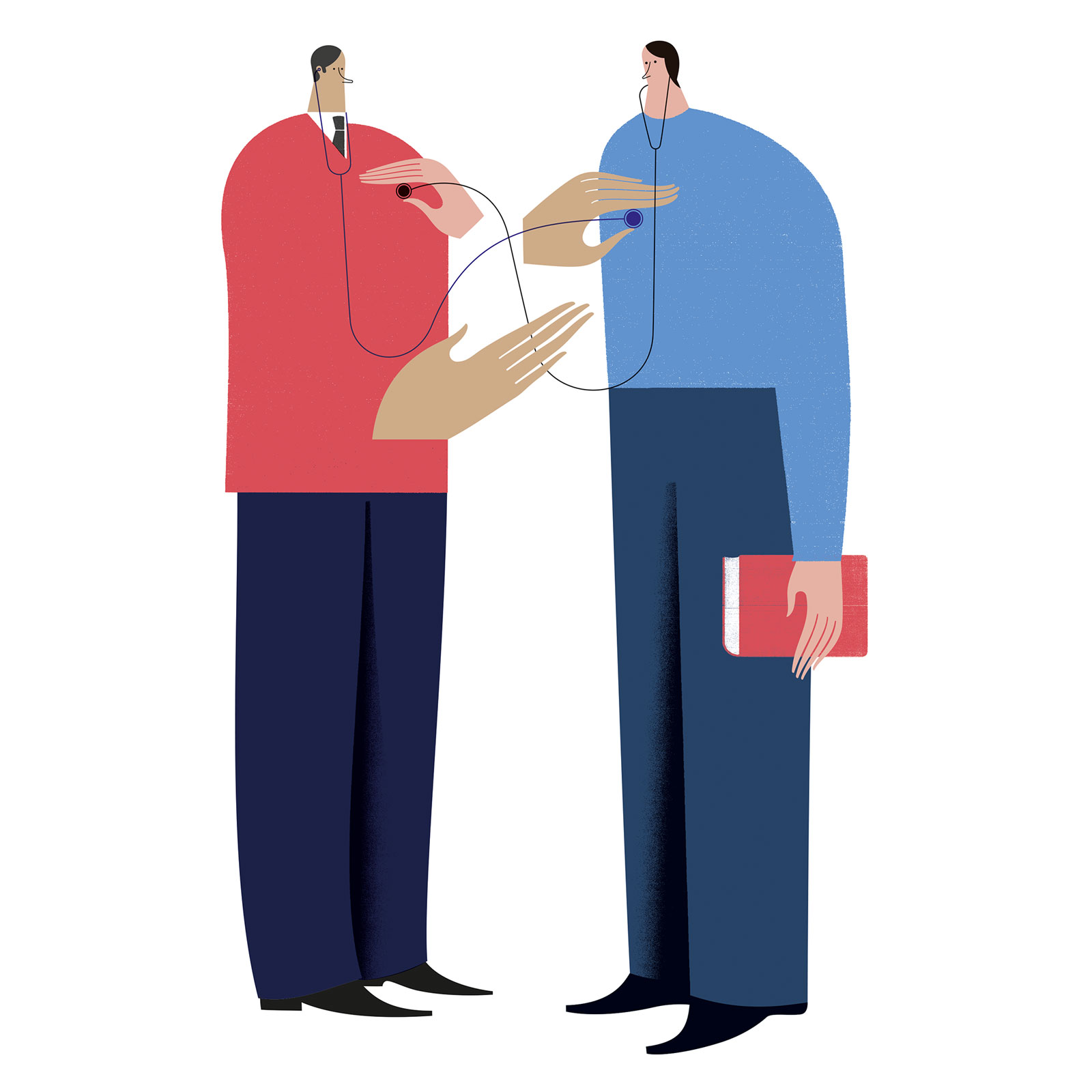
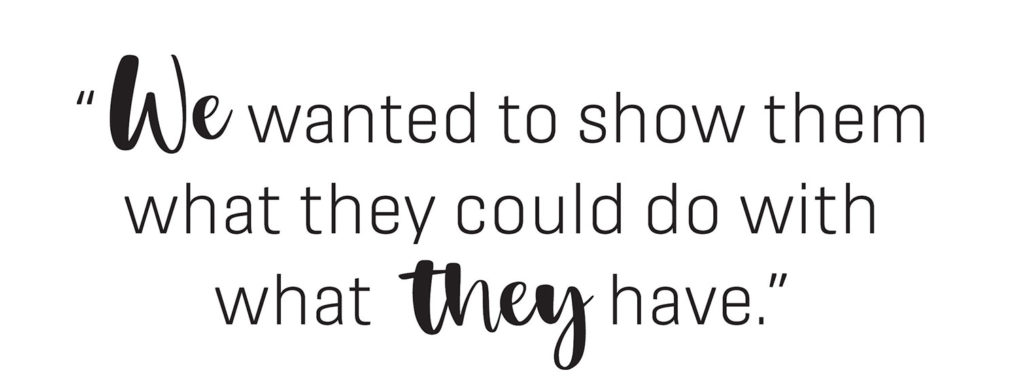
Humanitarian Response
T
he Miller School has a long-standing history with Haiti due to Project Medishare, a nonprofit founded by faculty in 1994, whose mission is to provide health care in Haiti. The organization helps its Haitian partners by establishing and funding programs, providing technology and equipment to hospitals and clinics, and training Haitian physicians, nurses and other health care providers.
Within a week of the earthquake, a 300-bed air-conditioned tent hospital was constructed. Over a four-month period, more than 20,000 critically injured and diseased patients were treated by 5,000 volunteer health care providers, and thousands of tons of medical equipment, supplies and medications were delivered.
“I believe it was the largest humanitarian response ever by a university and medical school,” said Dr. Green, Project Medishare’s co-founder.
A major factor in UM’s response was the strong Haitian presence on campus and in the community, as well as Haiti’s geographic proximity to Miami. “I can get on a 7 a.m. flight out of Miami and be operating in Port-au-Prince by 11,” said head and neck surgeon Donald Weed, M.D., professor of otorhinolaryngology.
Globally, head and neck tumors comprise a significant portion of cancer cases. According to Dr. Weed, physicians in Haiti also see a lot of ameloblastoma — benign tumors of the upper and lower jaw that can become massive in size and cause functional problems as well as social isolation. Removing them isn’t a problem. “The problem is reconstruction,” he said. A common technique is microvascular reconstruction, transplanting a segment of the fibula to the head and neck.
“These are operations we do all the time in Miami,” Dr. Weed said. “They are lengthy and require surgeon expertise and fairly specific resources,” but they are “highly doable” in low-resource settings like Haiti as long as the surgeon is capable and basic infrastructure is set up for perioperative and post-operative care. In fact, Dr. Weed has simplified some of ways in which he performs these surgeries in Miami based on the strategies his team has employed in Haiti.
The goal is to train local surgeons to do the complex reconstruction in a practical and reproducible way, as this technique can be applied to many other head and neck tumor types. But local surgeons can’t easily leave Haiti for a yearlong fellowship. “The key to solving that problem is us having a partnership and continuing to go back and forth to provide training in Haiti in a time frame that works with surgeons there,” Dr. Weed said.
Unfortunately, for now, travel to Haiti is extremely limited. Project Medishare’s partners are operating there, but because of the current violence and lawlessness in the country, all communication between Miami and Haiti now happens remotely.
For Dr. Blanc, Haiti’s challenges are personal. “My dad came to the U.S. when my mom was eight months pregnant with me,” said Dr. Blanc. “I’m a Haitian daughter and a child of many lands.” After completing her doctoral dissertation in 2015, returning to Haiti, she said, was a “natural feeling — it’s where I feel the most useful.” Yet, as a junior therapist she felt that something was missing. “I started as a clinician and switched to the research side because too many questions were unanswered,” Dr. Blanc said. “I wanted to fill the gap of data on the ability of culturally tailored mind-body medicine to counter the effects of natural disasters and man-made disasters.”
Miller School Dean Henri R. Ford, M.D., M.H.A., is also a native of Haiti, and he traveled there after the earthquake to provide surgical care to children injured in the catastrophe. Since then, Dr. Ford has returned regularly to provide medical care. In May 2015, alongside Haitian surgeons he helped train, Dr. Ford performed Haiti’s first successful separation of conjoined twins. “The Haiti-Miller School relationship is long, deep and significant,” he said. “Despite our anguish at conditions in Haiti today, the citizens remain profoundly resilient, our community bonds are strong, and our commitment is enduring.” He adds that those bonds were among the most important reasons he took his “dream job” as dean of the Miller School.
After 2019’s Hurricane Dorian caused widespread destruction in the Bahamas, Dean Ford flew there with Dr. Green and Hilarie Bass, then chair of the University of Miami Board of Trustees. “We committed to the government and to the people that we wouldn’t be there just for photo ops, but to create infrastructure,” Dr. Green said. While the goal is sustainability, that remains a work in progress. The ongoing effort is governed in part by a memorandum of understanding the University has with the nonprofit humanitarian organization Direct Relief, which responds to disasters. “We have a strong relationship with them building infrastructure and education programs,” Dr. Green added.
Not all low-resource places are alike. Some, like Haiti, are expected to be low resource indefinitely. In such places, the work that volunteers do is not sustainable. “Sustainability does not exist in any developing nation,” Dr. Green said. “You must have an economic engine in those communities that sustains the health care you are providing. In the central plateau — the most isolated rural area in Haiti, where we take care of 100,000 people from birth to death every year for the cost of under $10 per person — that program is only sustainable because of philanthropy.” Project Medishare’s goal is “capacity building,” which, according to Dr. Green, means “you train local health care providers to be skillful and committed enough to take good care of their fellow citizens.” Without outside donors, this is not sustainable.
Mobilizing Resources
I
n coordination with the Children of War Foundation, a Los Angeles-based nonprofit, the University recently deployed doctors, nurses and therapists to refugee camps and impoverished areas in Jordan to perform surgeries on children with major injuries and deformities, said Dr. Green, who also co-founded UM’s Global Institute. Its mission is to mobilize scientific and technical resources, harness interdisciplinary strategies, and apply new knowledge toward capacity building and a sustainable infrastructure in health care in underserved nations.
The Global Institute’s co-directors — Elizabeth Greig, M.D., assistant professor of medicine, and Vincent Torres, UHealth director of emergency management — work with Anjali Saxena, M.D., academic program manager, and Didi Bertrand Farmer, program director for efforts focusing on underserved women and children, to coordinate disaster planning, health care delivery, education and training, and community engagement.
A year ago, when the COVID-19 Delta surge struck Grenada, the island nation’s hospitals were overrun, and supplies were running out. Grenada’s health ministry reached out to the University of Miami. Consequently, the Global Institute recruited and mobilized volunteers from across the country, “which is what UM does best,” Dr. Green said. “We create partnerships. Within days, we shipped hundreds of thousands of dollars in medicine and equipment.”
They also get pulled into war zones, including Ukraine. The Global Institute has coordinated funding for hundreds of Ukrainian physicians and nurses and allied health professionals since the Russian invasion began to allow them to stay and provide care.
Enrique Ginzburg, M.D., professor of surgery at the Miller School and chief of surgery at Jackson South Medical Center, has participated in medical missions for many years, including to Iraq, where he traveled to help the Kurds. “When Ukraine came down, I thought, everyone is talking about it, but no one is doing anything about it,” Dr. Ginzburg said. “I had vacation time, and I reached out” to the Global Surgical and Medical Support Group (GSMSG), a Washington, D.C., nonprofit under whose auspices he traveled to Iraq in 2019.
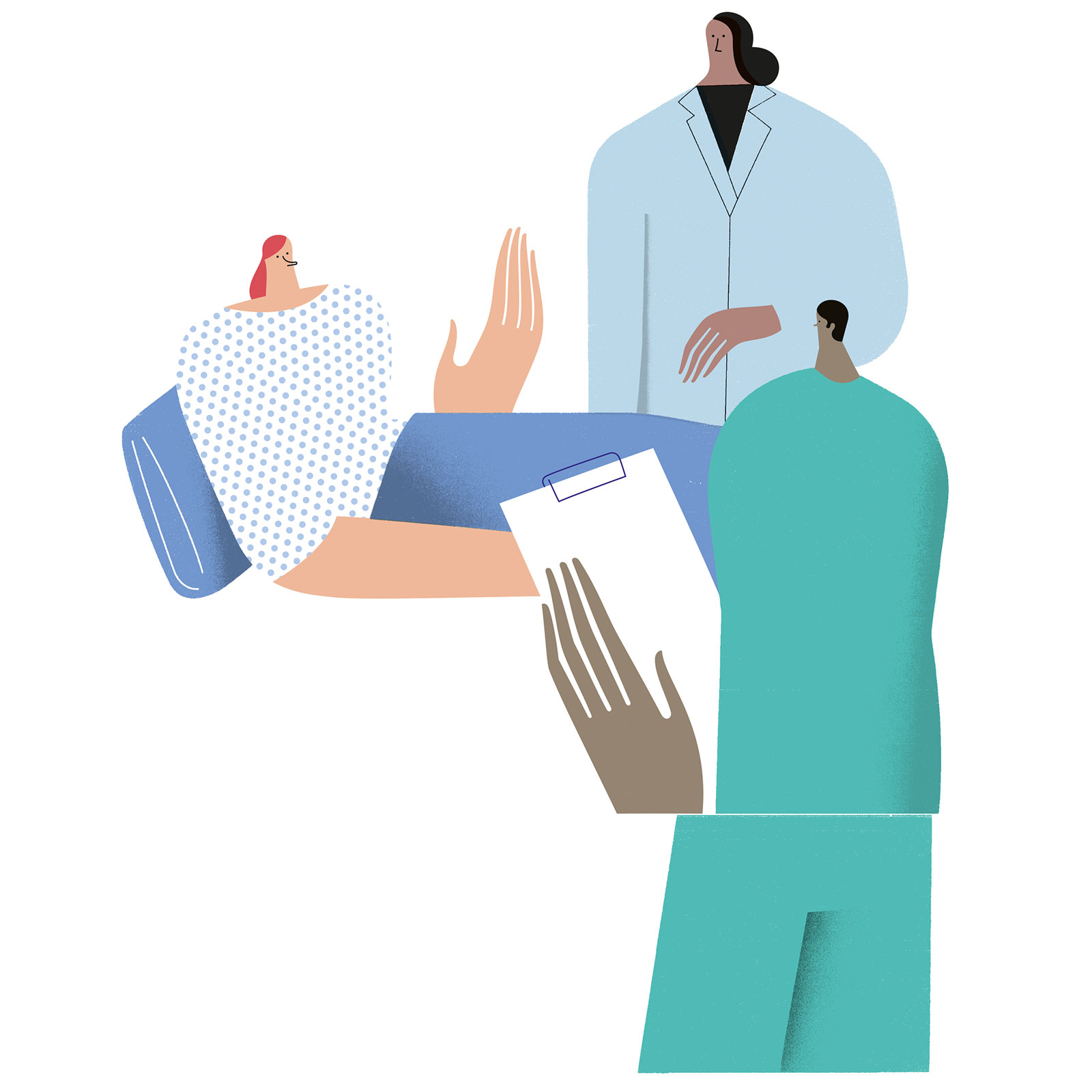

Ongoing Efforts in Ukraine
U
kraine is different, according to Dr. Ginzburg. The goal there — originally established for six months but ongoing because of the war — was to deliver equipment and knowledge. “They’ve got great surgeons, and the hospitals are equipped,” Dr. Ginzburg said. “Not like the U.S., but pretty good.”
In the days leading up to his departure for Ukraine, Dr. Ginzburg admitted that he experienced some fear, not knowing what he was stepping into. When he arrived, he saw things differently. “It was exciting,” he said. “It wasn’t what you see on TV. We were in the west,” away from the fighting. Nonetheless, there was a rocket barrage soon after Dr. Ginzburg arrived. “The next day at the hospital we had another episode of air raid alarms,” he said. “The Ukrainian doctors didn’t show much fear.”
But there was a hitch. In the runup to his trip, Dr. Ginzburg said he had been “burning the candle at both ends” and wound up passing out in the shower in Ukraine and striking his head, which caused him to experience vertigo for several days. Bedridden in the hospital where he was supposed to be performing surgeries, Dr. Ginzburg felt like he was a burden to the team. Ultimately, he recovered enough that for a day and a half he finally was able to accomplish several goals. “It took me straight out of the doldrums and made me realize that it’s not quantity but quality that counts,” he said. “You can contribute something that is substantial even if you aren’t able to carry out all your goals.”
Dr. Ginzburg’s Ukraine deployment was through the Global Surgical and Medical Support Group, co-founded in 2015 by Aaron Epstein, M.D., who completed an away rotation at UM when he was in school at the Georgetown University School of Medicine. He is currently completing a general surgery residency at the University of Buffalo and plans to return to the Miller School for a surgical fellowship. Dr. Epstein, whose background is in counterintelligence, launched GSMSG as a medical student. Supported entirely by donations, GSMSG has a network of around 1,500 professionals. “The vast majority are special ops veterans who were health care providers when they were in the military,” Dr. Epstein said. “The rest are surgeons of a very high caliber.”
Typically, deployments last for one to two weeks, and providers use their vacation time for their outreach. Ukraine is different. “Things have gone on much longer than our usual deployments,” Dr. Epstein said. “We are paying salaries to people who quit their day jobs.” Dr. Epstein noted that “there is a significant number of volunteers from the University of Miami involved in our efforts, partly because there is such a high level of trauma expertise there, and we want to bring the best, so we focused on bringing folks from Ryder Trauma Center at UM/Jackson Memorial Hospital.”
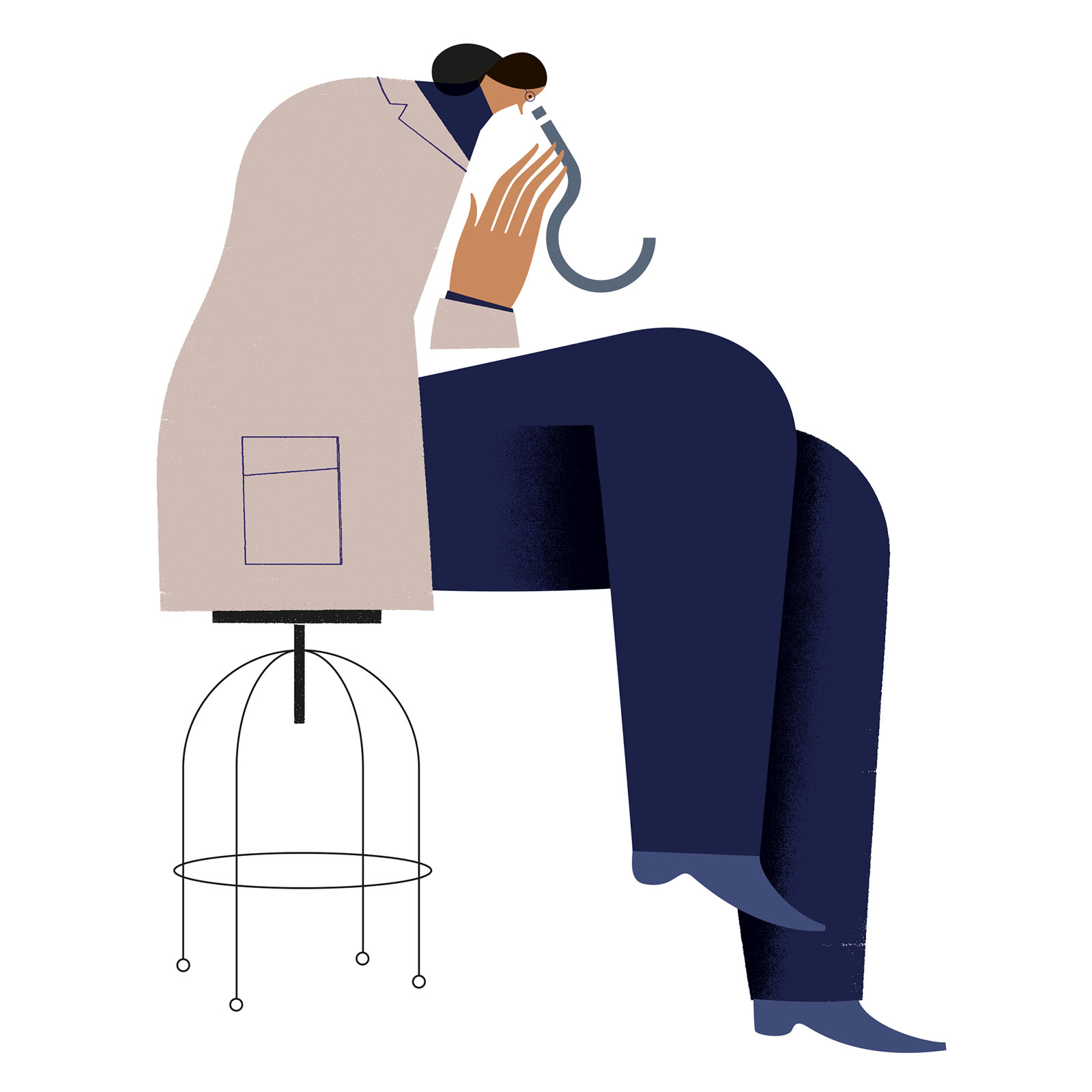

Providing Specialized Care
A
fter the 2010 earthquake hit Haiti, the Miller School’s Bascom Palmer Eye Institute (BPEI) was the first organization to deploy eye doctors to the distressed nation. BPEI plays a significant and wide-ranging role in global outreach. A number of ophthalmologists from Bascom Palmer visited the Galapagos Islands in 2015. At the time, University of Miami undergraduate marine biology majors were spending a semester there. “I went as a tourist and realized there were no ophthalmological services, just two general medicine clinics,” said Richard K. Lee, M.D., Ph.D., associate professor of ophthalmology. “We decided to go back and start a medical mission.” The Bascom Palmer team has returned every year except during the pandemic. “Everybody comes to the clinic,” Dr. Lee said. This year, after a two-year hiatus due to COVID, there were so many patients that the local island police had to be called in for crowd control.
The clinic performs refractions, glaucoma screening and retinal exams. “Basically, we provide a full examination,” said Raquel Goldhardt, M.D., associate professor of clinical ophthalmology. “Then we come back to Miami, we have eyeglasses made, and we either ship them or bring them back the following year to be distributed free. This year, we were able to bring reading glasses to every older patient with presbyopia.”
When disaster strikes underserved areas at home or abroad, the BPEI Vision Van — a custom-made school bus intended for local community service — rolls up. The front part of van is for vision screening and testing, and the back portion is equipped as an ocular exam and procedure area. “We have taken it to disasters like Hurricane Katrina in New Orleans,” Dr. Lee said. In 2011, when a tsunami hit Japan, the Vision Van was delivered by Russia in the world’s largest air transport plane, the Antonov-125. Flown from Miami to tsunami-devastated Sendai, Japan, the aircraft was one of the first civilian planes to land after the airport reopened. The Vision Van spent six months in Japan before Toyota shipped it back on a car transport ocean freighter.
While clinical service is important, training local doctors makes the work sustainable. Bascom Palmer physicians volunteer with the Orbis Flying Eye Hospital. The goal of Orbis, which began in 1982 with a plane donated by FedEx, is flying an eye hospital to low-resource countries in Africa, Asia, Eastern Europe and South America, and to bring in professors to train local doctors.
“The jet plane is retrofitted to be an eye hospital,” said Thomas E. Johnson, M.D., professor of clinical ophthalmology. The front is a classroom with 50 seats. Behind that is an operating room, and behind that are areas of pre-op, post-op and recovery. “The plane lands and gets set up for a three- to four-week mission,” he added. “Faculty are invited in different ophthalmology specialties. Orbis sends a front group to determine the needs of the community, surveying the local ophthalmologists to find out what is needed.”
The main goal is to teach, and Dr. Johnson plans to visit Ethiopia in December. “I have also been to Bangladesh,” he said, adding that he didn’t bring his own instruments for that mission. “I used their instruments, their anesthesiologists, their nurses,” he said. “We wanted to show them what they could do with what they have.”
Similarly, BPEI ophthalmologists have worked in parts of rural China with LifeLine Express to teach advanced medical and surgical ophthalmology, both in local hospitals and through their train-based surgical care that provides care using a system of railway-based eye operating rooms.
“We want to develop long-term and mutually beneficial relationships not only by improving the existing situation in an underserved location, but also by facilitating change in a sustainable way,” Dr. Goldhardt said. “These experiences serve as examples of how to strengthen current health systems practices globally.”
Research is an important element in Bascom Palmer’s global outreach. “We have published on the best approach to efficiently provide eyeglasses in the developing world,” Dr. Lee said, “and one of the first epidemiological studies of glaucoma in the Haitian population.”
Expanding Research Bases
I
t is also important to unlocking the mysteries of Alzheimer’s disease. According to Margaret A. Pericak-Vance, Ph.D., the Dr. John T. Macdonald Foundation professor of human genetics and director of the John P. Hussman Institute for Human Genomics, “We know that genetics is an important contributor to the risks of developing Alzheimer’s disease.” These genetic risk factors can vary based on an individual’s ancestry. This is particularly important to Black Americans with African ancestry and Hispanic/Latinx individuals, whose genetic ancestries are admixtures of African, Amerindian and European populations.
“Therefore, if we really want to understand the genetic risks for all individuals, we need to take a large global approach, and include studies in the ancestral populations, as well,” Dr. Pericak-Vance said. “This will ensure we have a complete representation of the genomic variability for all individuals at risk for Alzheimer’s disease.”
To this end, the Miller School is conducting a large study in which it is partnering with investigators throughout Peru, where Amerindian ancestry composes 75% of the average Peruvian citizen’s DNA. To continue to expand this knowledge, the Hussman Institute is taking the lead role in a new five-year, $46 million, international multi-site initiative with five other U.S. institutions, as well as institutions from nine African nations, to study Alzheimer’s disease in underrepresented African ancestry populations and several Hispanic/Latinx groups. “Only by being inclusive in our approach and including all groups and ancestries will we be able to develop targeted drugs and therapies that would be universally beneficial,” Dr. Pericak-Vance said.
Dr. Blanc, daughter of Haiti, suggests that we all experience as much of the world as we can. “I invite people to travel and explore other ways of being,” she said. “You see the world from different perspectives. When you have a chance to discover another country, you realize there are different ways of doing things.” Some volunteers or global health professionals think they are going to low-income countries to teach people, as if there was no knowledge before their arrival, she said. “No, you are going there because if someone there is not doing well, the entire world is not doing well. The COVID-19 pandemic is a perfect illustration of this interconnectedness. You are going to partner with a group and build on their local knowledge to make the world a better place for everyone.”![]()
To support the Miller School in our global outreach, visit give.miami.edu
Reaching Out to South Florida’s Underserved
Wolfson DOCS brings compassion and care to those who need it most
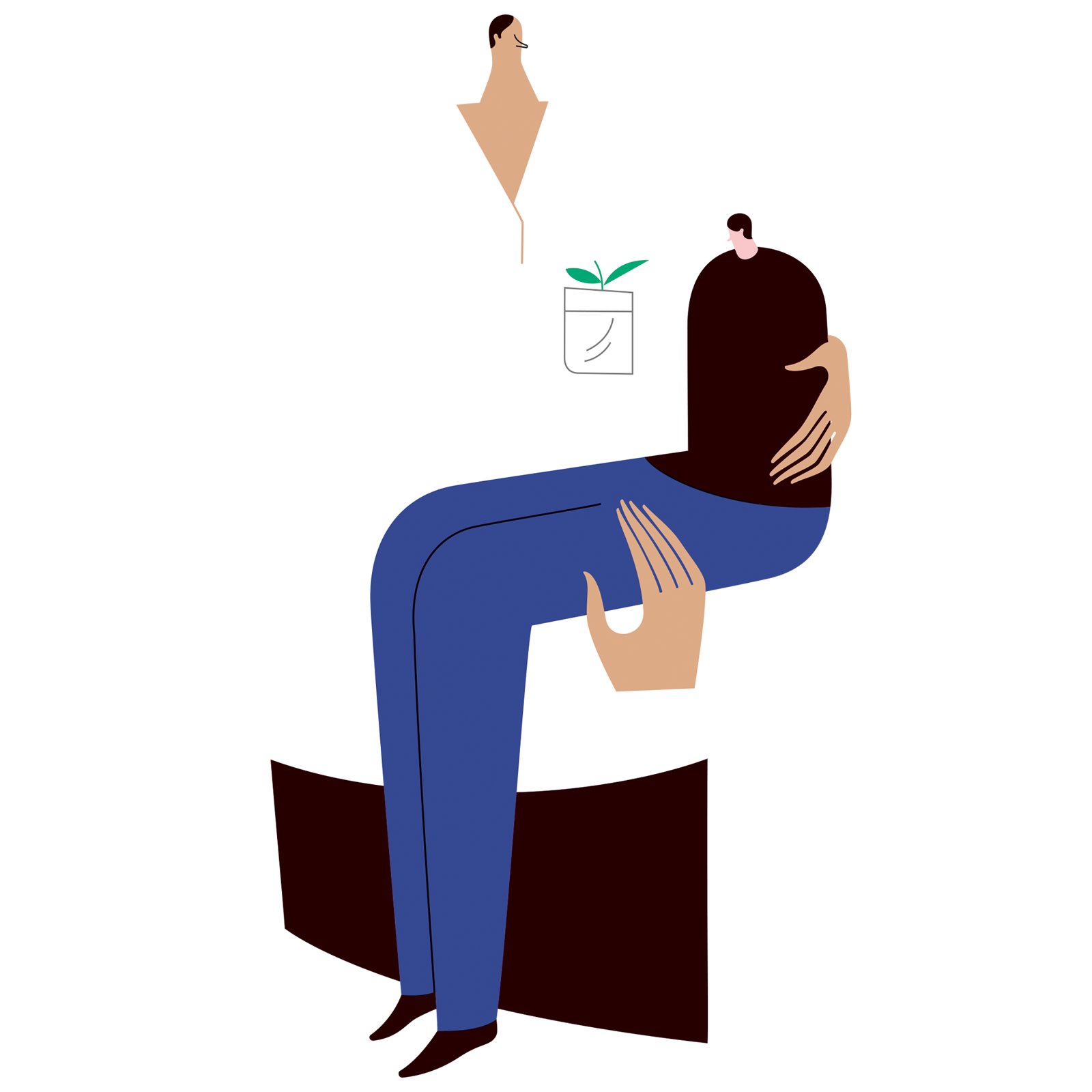
F
ourth-year Miller School student Victoria Gabor understands the importance of providing health screenings, education and care to vulnerable individuals and families in South Florida’s diverse underserved communities.
“Everyone should have access to the medical care they need regardless of economic status or other barriers,” said Gabor, one of three executive directors of the Miller School’s student-run Mitchell Wolfson Sr. Department of Community Service (Wolfson DOCS). “Our health fairs and clinics make medical screenings and medical care available to patients who otherwise would not have the opportunity to obtain them.”
Health fairs this fall in Fort Lauderdale and Little Haiti exemplify the Wolfson DOCS program’s year-round community services, which include engaging diverse participants. “Working with unique populations in our own community has taught me so much about compassionate health care, and has reinforced my reasons for starting medical school in the first place,” Gabor said.
By participating in Wolfson DOCS, students gain hands-on clinical experience, hone their leadership skills, and receive mentorship from other students and volunteer physicians, according to faculty advisor Amar R. Deshpande, M.D. ’02, professor of medicine and associate dean for medical education. “Wolfson DOCS provides our students with practical clinical experience that includes educating patients, families and communities about health and well-being and working with physicians to treat them,” he said.
A Half Century of Service
Miller School students have been providing volunteer community education, screening and care for more than 50 years, beginning with a 1971 health fair in Big Pine Key. Through the years, the program expanded, and Wolfson DOCS was founded as a student-run nonprofit organization in 2000. Six years later, it was renamed the Mitchell Wolfson Sr. Department of Community Service following a generous philanthropic donation.
Each year, Wolfson DOCS holds 10 health fairs in communities throughout Miami-Dade, Monroe and Broward counties, with an additional four weekly free clinics for medically underserved populations. Students screen for the most prevalent diseases — including hypertension, diabetes, dyslipidemia, vision loss, obesity and depression, as well as colon, breast, cervical and skin cancers — and provide referrals for those at risk.
Despite the challenges of the COVID-19 pandemic, in 2021–22, more than 200 physicians worked with hundreds of medical students to see nearly 1,500 patients at health fairs and clinics.
“The Wolfson DOCS program represents one of the Miller School’s most fundamental and essential missions: service to our community,” said Henri Ford, M.D., M.H.A., dean and chief academic officer. “Our students and faculty bring medical care to neighborhoods whose residents often have no other way of getting this care.” — Richard Westlund
To support Wolfson DOCS, visit the donation page.
Extra Credit
Miller School students are making a difference through overseas health missions
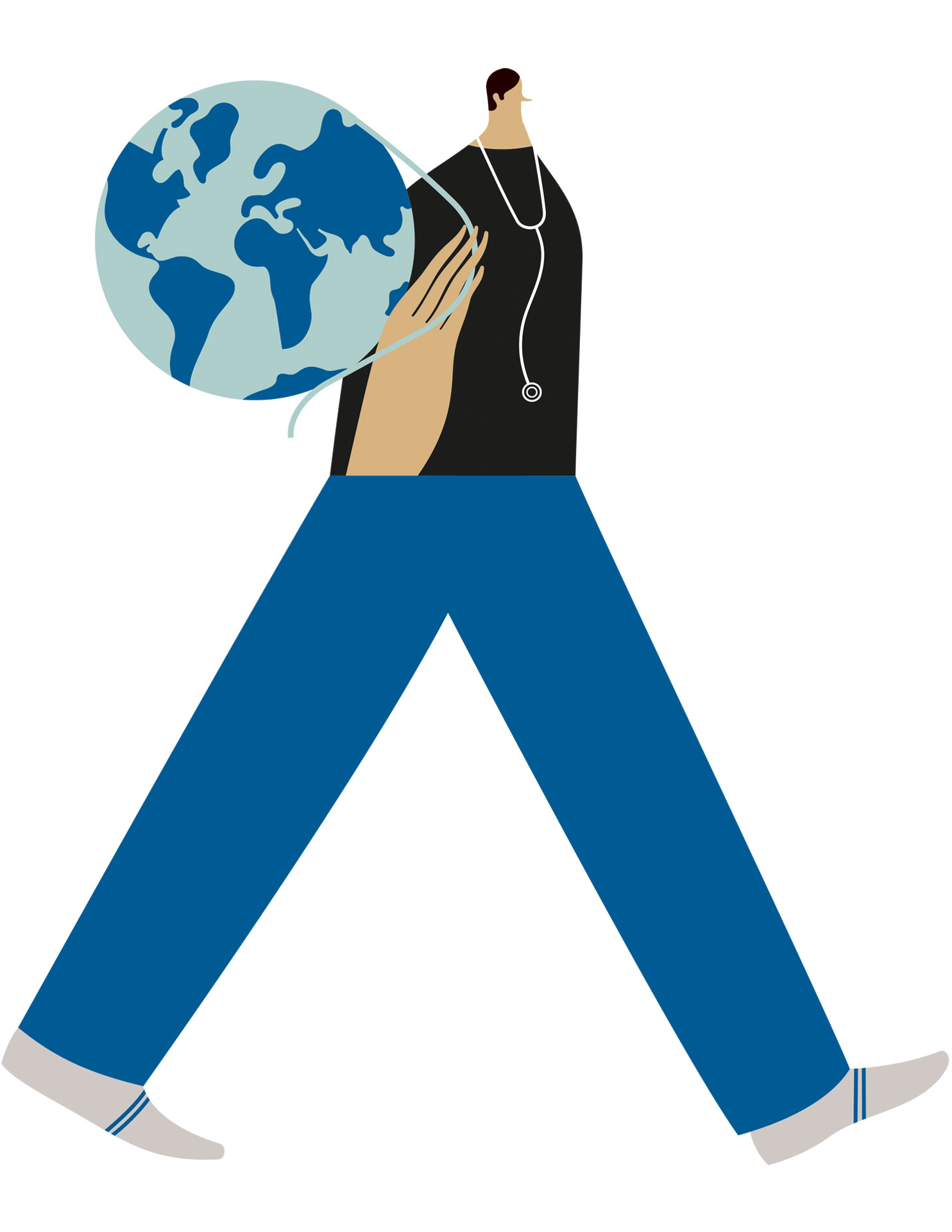
T
hrough the Chicago-based Global Environmental Health Lab, students from the Miller School have traveled to Indonesia or worked with in-country partners via Zoom to conduct research and deliver training. Three of them tell their stories.
Sabrina Hennecke (M.D./M.P.H. ’23)
“I remotely studied the prevalence, policies, practices and norms surrounding antibiotic-resistant diseases. Globally, the systemic overuse of antibiotics jeopardizes their effectiveness by increasing selection for and prevalence of antibiotic-resistant strains. Although seemingly apocalyptic, the reality is that we are on the precipice of a post-antibiotic era in which mortality rates will skyrocket and food security will be threatened. The goal of this study is to use new data to build capacity within the nation and push for development, budgeting and effective implementation of policy and surveillance plans to control both antibiotic usage and the prevalence of antimicrobial resistance.”
Rachael Chait (M.D./M.P.H. ’25)
“I helped run a three-week summer program onsite at the Institute of Technology Bandung, two hours south of Jakarta. We put on a summer school for local students who were undergrads, master’s students, medical students and environmental engineers. The program was broken up into three sections: teaching about environmental public health including climate change, sanitation, waste management and hygiene; teaching research skills to local students, such as how to do a literature review and perform quantitative and qualitative data analysis; and working on a research project with Dr. Tomoyuki Shibata, the Global Environmental Health Lab’s co-founder/executive director, studying the effect of religion on vaccine uptake. I assisted with literature review, put together a survey, worked with local students to translate the survey, conducted a sample distribution, received sample responses and filed for approval. This is a very good example of sustainable global health.”
Alyssa L. Zlatkin (M.D./M.P.H. ’23)
“I worked to assess the current state of children with disabilities, including their quality of life, based on WHO metrics, access to health and education, disaster preparedness and the effects of COVID-19. I created a survey that was distributed to educators, health care professionals and caretakers of children with disabilities in Indonesia. I wish to apply this research to enact positive change for children with disabilities in Indonesia and Myanmar, and around the world. I also helped develop a strong community partnership with a local NGO in Tanzania. Through our collaboration, I was able to help facilitate a water, sanitation and hygiene demo and acquire face masks for people with disabilities in Tanzania for the 2020 UN International Day of Persons with Disabilities — all from more than 9,000 miles away during the height of the pandemic. I would encourage any medical student who is passionate about global health to pursue opportunities in medical school that help fulfill that passion. No matter how many obstacles arise, do not give up. Immerse yourself in the experience, pursue what you truly love, and remain determined and adaptable to give back to the community you are working in.” — Louis Greenstein
Expanding Our Global Footprint
International training programs connect participants in person and online
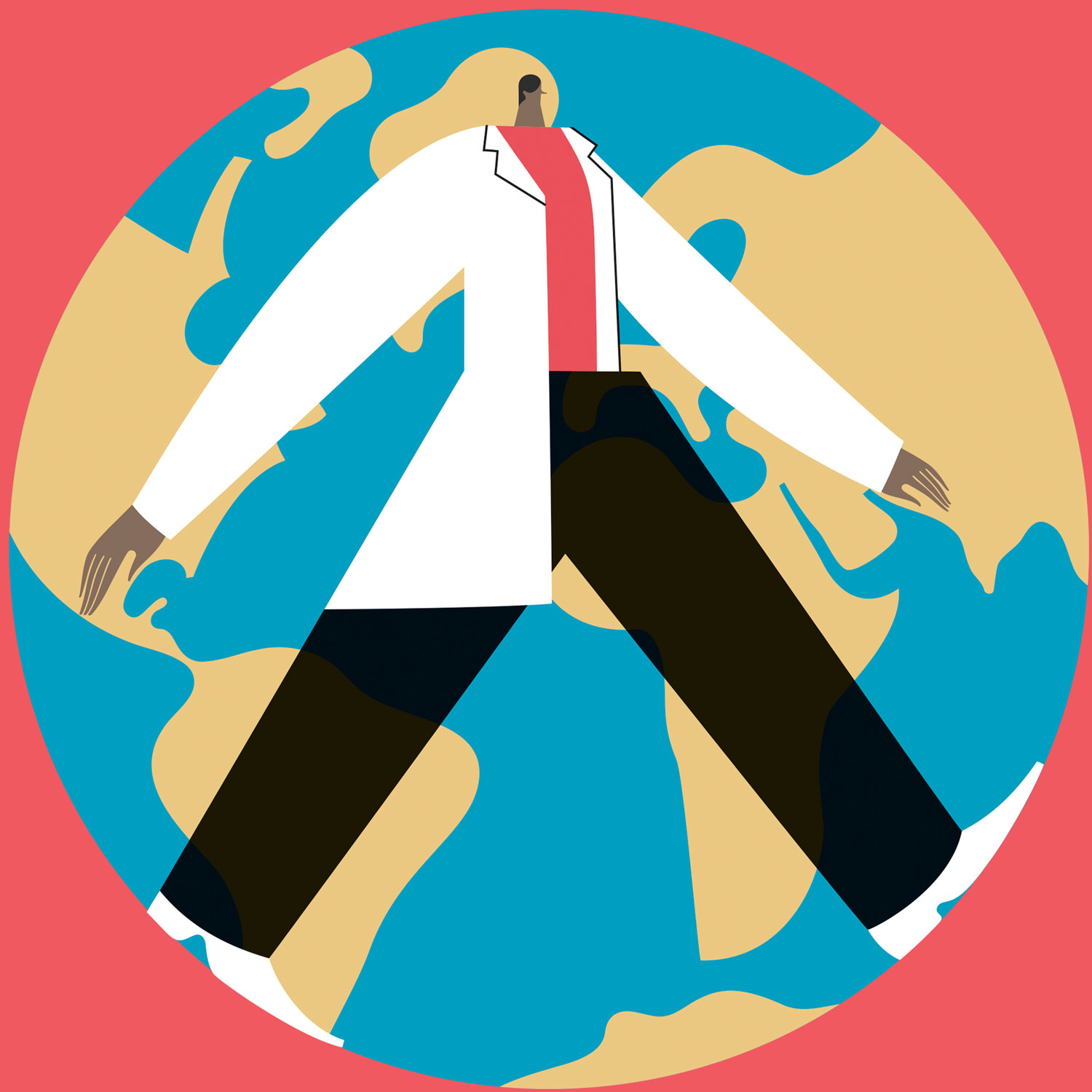
M
edical professionals and students around the world are learning new therapies and surgical procedures through the Miller School’s in-person and virtual international training programs.
“We have been reaching out to the Americas, as well as other continents, for many decades, in keeping with our mission to be a global center for academic medicine,” said Eduardo J. de Marchena, M.D., professor of medicine and surgery and associate dean for international medicine. “We multiply our educational impact training physicians, students and other health professionals. We also engage them in collaborative research projects and medical conferences, expanding the Miller School’s global footprint.”
For 55 years, the William J. Harrington Medical Training Program — Dr. de Marchena is also its medical director — in the International Medicine Institute (IMI) has offered residency and fellowship positions to professionals in the Caribbean and Latin America who are striving to deliver better care in their communities. Currently, there are 36 participants in the three-year, in-person program.
More Than 10,000 Trained
The Harrington Residency Program for Latin America and the Caribbean was founded in 1967. It was followed by the Latin American and Caribbean Observership Training Program in 1975, and the Global Observership Training Program in 2008. In all, the programs have trained more than 10,000 medical professionals. IMI also organizes international conferences such as Miami Valves, an annual cardiology conference dedicated to better understanding heart disease, and advances collaborative biomedical research.
When the COVID-19 pandemic halted in-person education in spring 2020, IMI quickly shifted to virtual training. Through a HIPAA-compliant online platform and mobile computer videoconferencing technology, hundreds of observers took part in virtual grand rounds at UHealth Tower.
Now, the IMI offers a hybrid set of programs, including virtual observerships with 89 participants from 24 countries since June. For in-person training this summer, 139 observers shadowed Miller School professionals, analyzed new admissions and discussed care for individual patients. The students also participate in academic activities and morning rounds.
Reflecting on the impact of IMI’s training programs, Dr. de Marchena said, “By training generations of international physicians, the Miller School has made a lasting contribution to patient care, public health and medical research throughout the hemisphere and around the world.” — Richard Westlund
To support the Harrington Residency Program, visit the donation page.
Resources on the Road
Mobile care vans support greater access
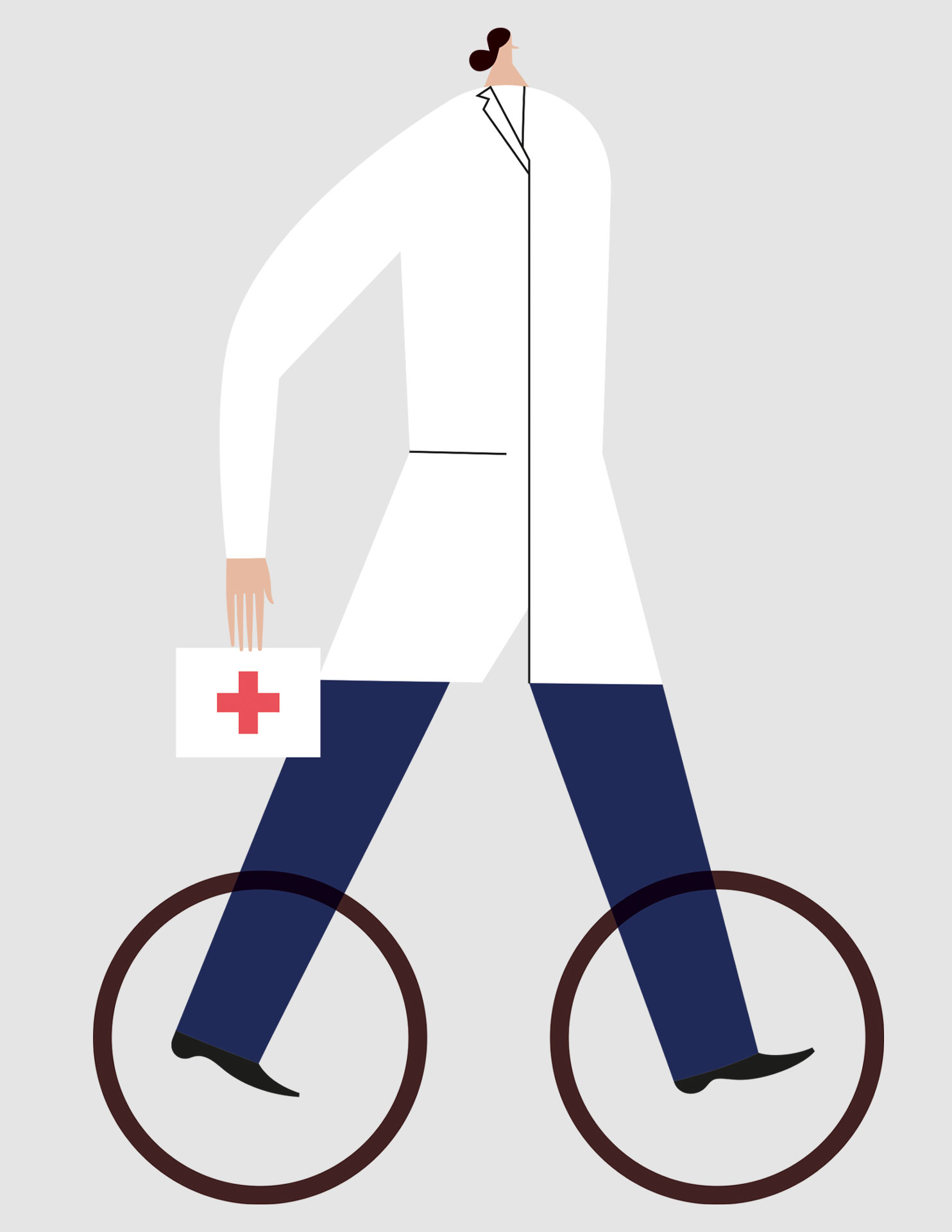
R
ecognizing the importance of early cancer detection and education, Sylvester Comprehensive Cancer Center launched its Game Changer mobile clinic program five years ago. “We work collaboratively with our community partners to close gaps in cancer education and address access barriers to screening and research participation,” said Erin Kobetz, Ph.D., M.P.H., professor of medicine and public health sciences and vice provost for research.
“Our outreach teams interact with 15,000 to 20,000 individuals a year, including free HIV and hepatitis tests as well as cancer screenings,” Dr. Kobetz said. After starting with one Game Changer vehicle, Sylvester will soon have three — including one funded by Florida Blue for Monroe County and another, now under construction, supported by the PAP Corps Champions for Cancer Research for Broward and Palm Beach counties — that focus on underserved neighborhoods. Harris Philanthropies provides support for the ongoing costs of the Game Changer program.
South Florida children and families also can receive health care services through the Miller School’s Pediatric Mobile Clinic and the Dr. John T. Macdonald Foundation School Health Initiative. “The need for pediatric health care in our community continues to grow,” said Lisa Gwynn, D.O., M.B.A., M.S.P.H., associate professor of clinical pediatrics and public health sciences, and director of mobile clinic and school health programs. “We attract long lines of children and families seeking to access our services.”
Convenient Access to Screening Services
Currently, the pediatric program has two mobile clinics, along with an older unit that is being refurbished. Traveling throughout Miami-Dade, they provide families with convenient access to medical services and immunizations through the Shotz-2-Go program. “We also have medical teams in nine schools, bringing health care to students so they can focus on learning and improving educational outcomes. Outreach is a vital part of our mission, and we couldn’t do it without our partners and supporters,” Dr. Gwynn said.
For nearly 20 years, Bascom Palmer Eye Institute’s Vision Van, donated by the Josephine S. Leisere Foundation, has provided screening and clinical care in South Florida as well as other communities devastated by natural disasters. The 40-foot, custom-designed mobile eye clinic has also traveled to Japan, New Orleans and Key West to assist first responders and victims of earthquakes and hurricanes.
In 2020, with funding from the Salah Foundation and Canon U.S.A., Bascom Palmer obtained a smaller, second Vision Van. It provides additional flexibility in bringing volunteer vision teams to people in Miami-Dade, Broward and Palm Beach counties in need of eye screening or care, according to Zubair Ansari, M.D., assistant professor of clinical ophthalmology and medical director of community clinical services at Bascom Palmer. “We look forward to expanding our outreach and building more partnerships with local organizations in the future,” he said. — Richard Westlund
Sylvester Visit Cements Partnerships with Nigerian Colleagues
Colleagues in Africa will travel to Miami to gain further experience
I
n July, Sylvester Comprehensive Cancer Center physician-scientists Sophia George, Ph.D., and Matthew Schlumbrecht, M.D., visited the Lagos University Teaching Hospital (LUTH) and other sites in Nigeria to advance genomic research and medical education.
“There were two components to the trip,” said Dr. George, associate director of diversity, equity and inclusion at Sylvester and associate professor in the Miller School’s Department of Obstetrics, Gynecology and Reproductive Sciences. “One was setting up collection sites for the African-Caribbean Single Cell (sc) Network, which is gathering genetic samples from people of African descent to investigate the genetic drivers behind breast, ovarian and prostate cancer. In the other piece, Dr. Schlumbrecht was providing in-depth training for Nigerian gynecologic oncology fellows.”
The African-Caribbean scNetwork
Dr. George and colleagues at Sylvester recently received $1.65 million from the Chan Zuckerberg Foundation to support the African-Caribbean scNetwork, a component of the African Caribbean Cancer Consortium and the TransAtlantic Gynecologic Cancer Research Consortium.
Until recently, genomic research had been heavily weighted toward people of European descent. The African-Caribbean scNetwork seeks to diversify this work and identify genetic variants that may be unique to people of African descent in order to improve cancer outcomes.
When the Sylvester team arrived, they found that their Nigerian counterparts had tremendous enthusiasm for this project.
“Our intent was to launch at two sites,” Dr. George said. “But we were invited to expand the study across northeast Nigeria to five sites. We ended up meeting additional colleagues, collaborators, students, fellows and residents, attending gynecologists, urologists, surgeons and leadership.”
Fellowship Training
While Dr. George was helping the Nigerian researchers set up their collection and analysis infrastructure, Dr. Schlumbrecht was training gynecologists and gynecologic oncologists at a five-day conference at LUTH.
Sponsored by the International Gynecologic Cancer Society (IGCS), the two-year fellowship program will provide in-depth gynecologic oncology training for physicians in Lagos and Zaria in northern Nigeria. Dr. Schlumbrecht is a member of the IGCS Global Curriculum Committee, which trains gynecologic oncologists around the world, and will serve as the international mentor for Lagos and Zaria.
“There is a dearth of fellowship-trained gynecologic oncology specialists in the world, so the IGCS has created this comprehensive curriculum to help remedy that,” said Dr. Schlumbrecht, professor in the Department of Obstetrics, Gynecology and Reproductive Sciences. “But we also need to customize that curriculum to each site, and that was part of our visit.”
During the conference, Dr. Schlumbrecht led seminars on surgical anatomy, triaging patients for chemotherapy, novel approaches to treating cervical cancer and many other topics. These discussions will continue through monthly tumor boards, conducted remotely, and other meetings.
“One of the great things about Dr. George’s Chan Zuckerberg funding is that her research colleagues also work with me to advance education,” Dr. Schlumbrecht said. “As a result, we can intertwine the two, teaching the junior fellows how to be research clinicians as well as taking care of patients.”
The Nigerian fellows will also travel to the University of Miami to gain hands-on experience in a variety of disciplines.
“During their three-month observerships, they will gain experience in genetics, palliative care, pathology and radiology,” Dr. Schlumbrecht said. “They will spend time with me and my colleagues to see what it’s like at an academic institution in the United States and how we’ve built our program, so they can translate that back to their home institutions.” — Josh Baxt


